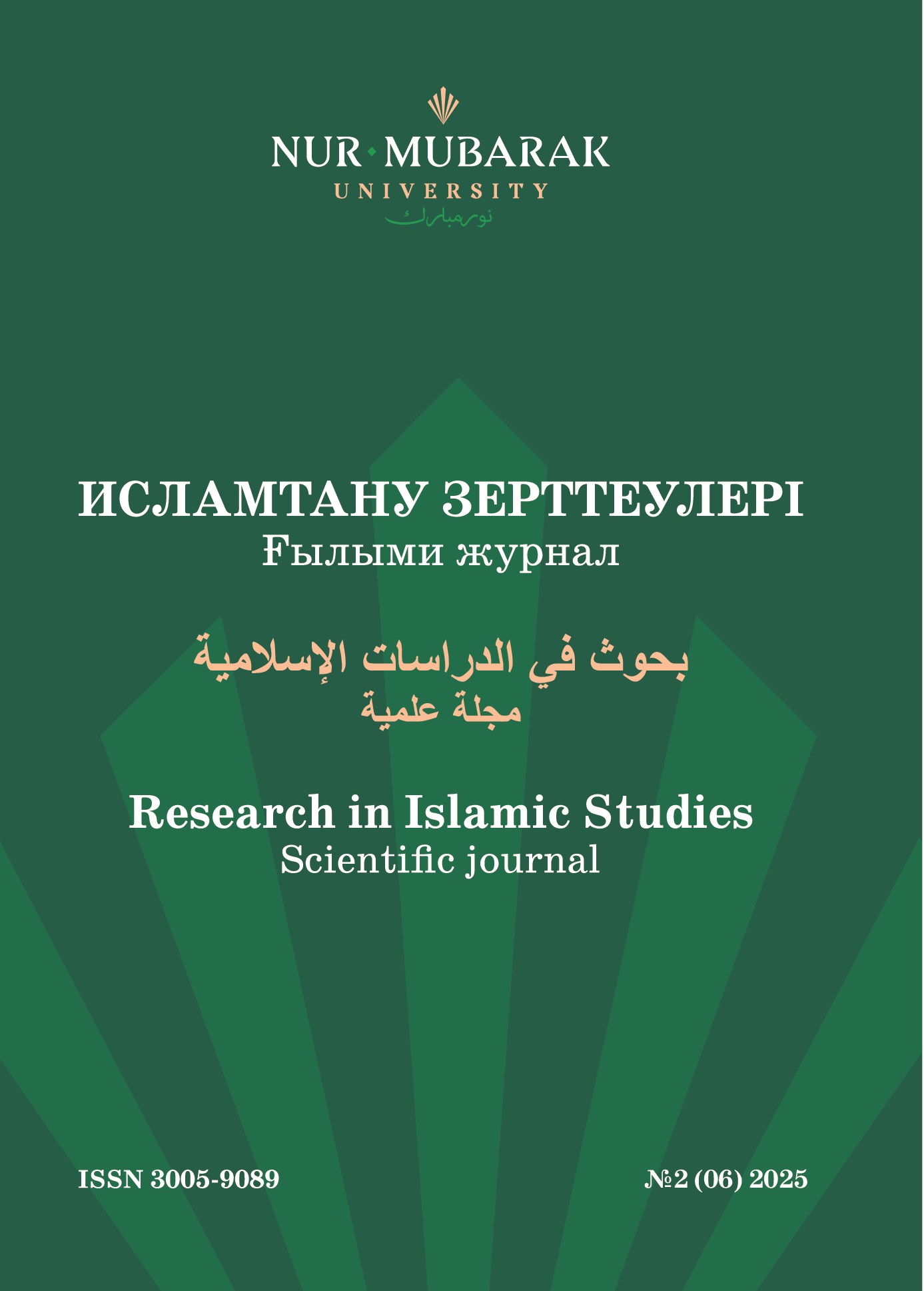Abstract
This article explores the rationalist approach of the Egyptian thinker Nasr Hamid Abu Zayd to interpreting the Qur'an and examines the influence of his hermeneutics on contemporary religious and intellectual developments in the Muslim world. Special attention is given to the risks of introducing such interpretive models into the Kazakhstani context, where Islamic identity is in the process of revival. The author analyzes the methodological foundations of Abu Zayd’s approach, compares them with Maturidite theology and Hanafi fiqh, and identifies possible consequences of liberal interpretations in the absence of a stable theological tradition. The article concludes by emphasizing the need to preserve traditional Islamic foundations, especially in the field of education, and to strengthen scholarly critique of modern hermeneutical concepts.



